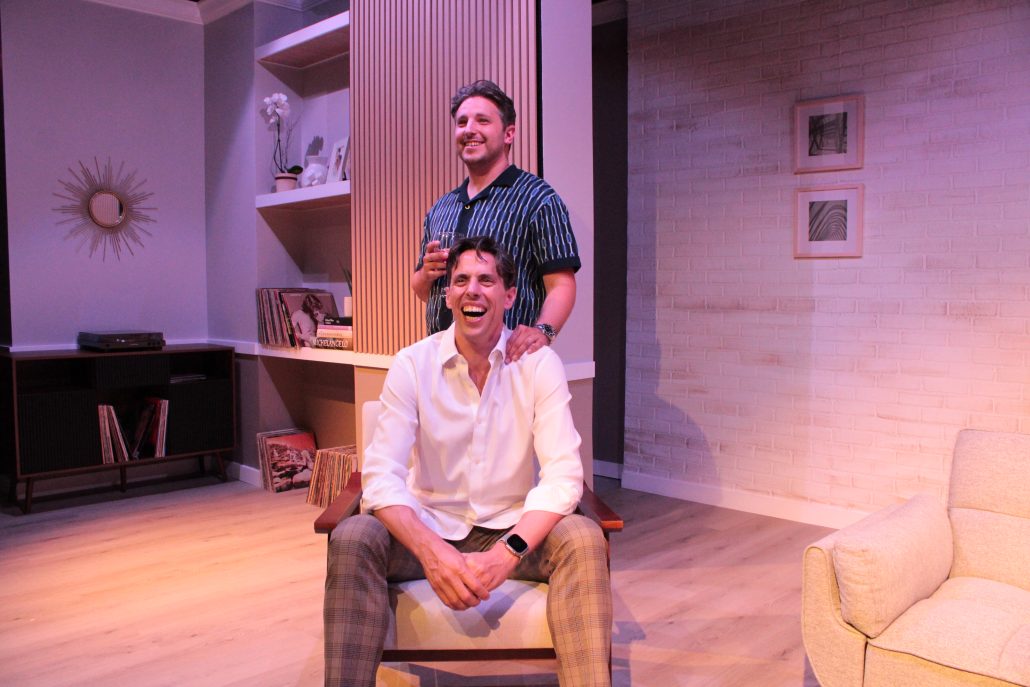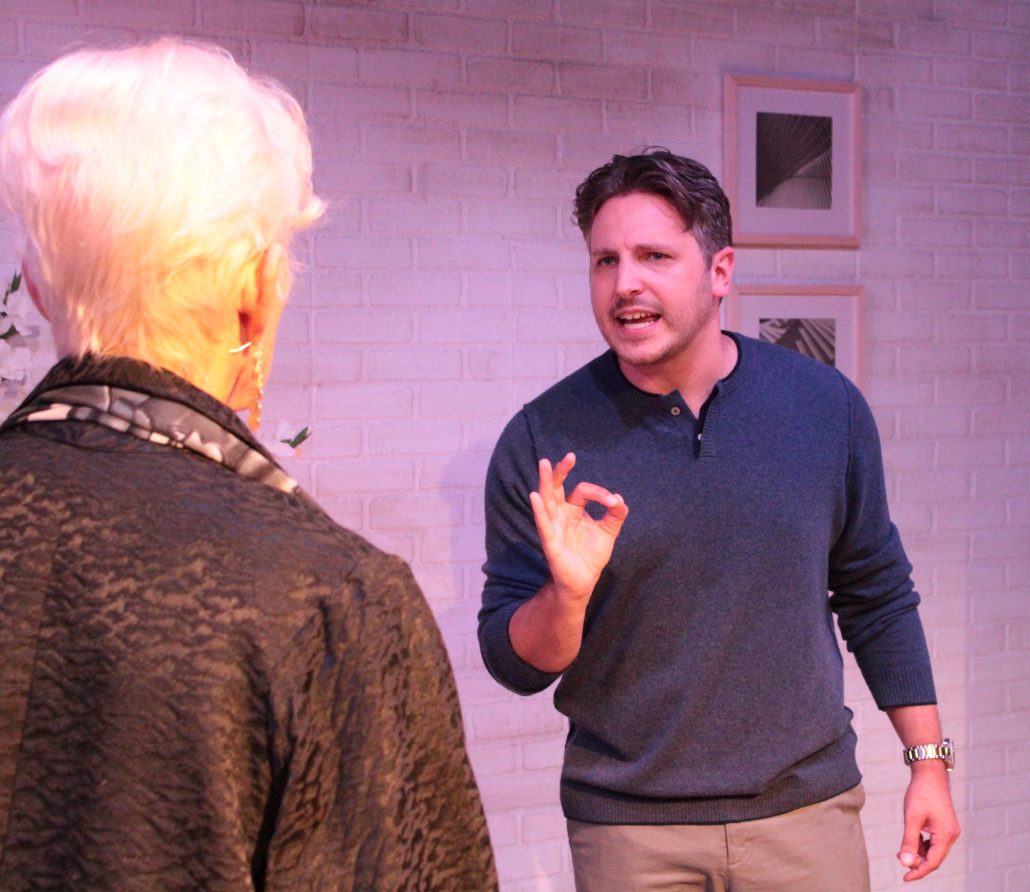It’s only been nine years since the play “Daniel’s Husband” enjoyed its world premiere right here in South Florida, in a production that would go on to win three Carbonell Awards. Experiencing the show again, this time at Wilton Manors’ intimate Foundry space, and under direction from its author, Michael McKeever, “Daniel’s Husband” feels every bit like a classic.
I was fortunate to catch the first staged reading of “Daniel’s Husband” at Lynn University prior even to its first full production, and the bones of the play remain unchanged. Intricately layered and emotionally gripping seemingly from the moment of its inception, McKeever’s deeply humanist parable now feels like an essential entry in the canon of American playwriting.
And yet “Daniel’s Husband” is only as old as the “Obergefell” Supreme Court decision that granted same-sex marriage, and that helped inspire its story. It’s more than worth revisiting the play now, in a tenuous, post-“Dobbs” environment for civil rights, in which, according to the Justices themselves, marriage equality is another precedent that could be overturned. I’m not sure this is the best production of “Daniel’s Husband” I’ve seen—its Island City Stage debut established excellence as a baseline—but it certainly feels like the most urgent.
The play is set in the living room of Daniel (Robert Koutras) and Mitchell (Ryan Didato), a handsome-on-a-budget, Art Deco-style space designed by McKeever, working triple duty on this production. (As a vinyl junkie myself, I was instantly drawn to the record corner, noting the 1976 “Star is Born” soundtrack and Led Zeppelin Houses of the Holy album sleeves visible from my seat; given Daniel’s eclectic taste in music, both of these track.)

The opening scene is the play’s bubbliest, with Daniel, an architect, and Mitchell, a writer of popular if unfulfilling gay pulp novels, holding court with Mitchell’s agent Barry (Jordon Armstrong) and Barry’s significantly younger boyfriend, Trip (an adorable Kevin Veloz). This age disparity prompts some of McKeever’s most enduring comedic lines—from Mitchell to Barry: “If you’re 26, then he’s a fetus”—but talk soon turns to a point of division between Daniel and Mitchell. The former wants to marry, and the latter is fundamentally opposed to its heteronormative traditions. Mitchell appreciates that same-sex couples can now wed; he just doesn’t want any part of it, and when prompted, he offers a litany of reasons, with Didato convincingly arguing this unpopular opinion in what emerges as the first of the play’s three powerful soliloquies.
It’s a debate that Mitchell has won. Seven years into their rock-solid relationship, the couple is still not legally bound, a distinction that will come home to roost when a fluke incident bisects the show. McKeever, as director, deftly handles this abrupt shift, fluidly transitioning from a sort of glossy sitcom patter into a great American tragedy. While I will try to avoid direct spoilers from this point on, if you’ve never seen “Daniel’s Husband” I would suggest reading the rest of this review after your experience.
At the heart of the second half of “Daniel’s Husband” is a series of dialogues-turned-custody battles between Mitchell and Lydia, Daniel’s mother, played with nuance and complexity by Barbara Sloan. Lydia is the show’s antagonist, and for most audiences of “Daniel’s Husband,” she is certainly its most detested character. But when she insists, “I’m not the villain here,” Sloan’s performance is so impactful, so recognizably motherly, that we can see the logic even as we root for the other side.

As that “other side,” Didato colors Mitchell in shifting textures of hope and resignation, anger and tenderness, embodying the entire Kübler-Ross spectrum in his dynamic performance. Koutras’ work is a bit overly pitched at times in the play’s first half, especially in the moment leading up to the plot’s most pivotal development. But I was especially taken with his necessarily subtle work in the show’s final scenes, when he’s deprived of nearly all his tools as an actor and still manages, through eye movements and blinks timed just so, to assert something almost like agency.
McKeever’s direction excels in both the grand sweep of his storytelling and the picayune details of his staging and props: Notice the boxful of Mitchell’s latest book Boy Lost, with the two or three meanings inherent in the title, staring back at him in the play’s side two, if you will. Or the extraordinary deployment of Peter Gabriel’s ethereal cover of the Magnetic Fields’ “The Book of Love” to conclude the show, with the once-casual request of its final line—“You ought to give me wedding rings”—taking on a transcendent and sorrowful heft.
If you’re like me, you’ll be a puddle by the end of “Daniel’s Husband.” Gay or straight, even the most hardened skeptic of matrimony will be stirred to put a ring on it by the end of this devastating cautionary tale.
“Daniel’s Husband” runs through June 16 at the Foundry, 2306 N. Dixie Highway, Wilton Manors. Tickets cost $37.50 and are selling very quickly. Call 954/826-8790 or visit ronnielarsen.com.
For more of Boca magazine’s arts and entertainment coverage, click here.







